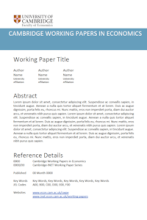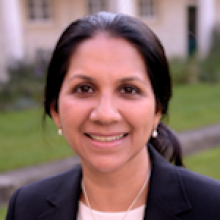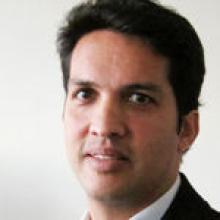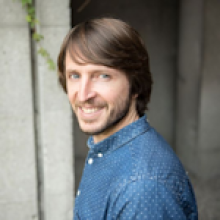The main objective of this project is to understand the role of religion as a form of informal insurance. We find that individuals' investment in religion is a result of their beliefs but also due to the role of religion in insuring individuals against different types of risk. In particular, we investigate how risks such as becoming unemployed, encountering large unforeseen expenditures and crime may affect individuals’ participation in religious activities. To investigate this, we undertook the following steps:
- We collected two rounds of data in Brazil on religious activities and risk perception of individuals, thereby constructing a comprehensive dataset of individual religious activities. The dataset covers over 1000 individuals. Our second wave of data collection was temporarily halted by Covid‐19, but once data collection resumed, we are now able to report that all the data have been collected and received. We worked with ISER – the Institute for the Study of Religion in Brazil to collect the data.
- We used the collected data to empirically investigate the extent to which individuals use religion related activities to mitigate the impact of negative shocks. Our data allows us to differentiate between different religions in Brazilian society and the specific activities themselves.
- We build a theoretical model, accounting for different characteristics of individuals and various types of risks that they face. In the model, individuals invest in religious activities to increase their life and afterlife time value. Thus, their investments are due to their beliefs in afterlife but also to insure against the risks they face in this life.
Preliminary results suggest that religion serves as a buffer for shocks across many dimensions. For instance, we find that religious networks are likely to help the unemployed to find a job. In order to enjoy services from religious networks, individuals engage in religious investments such as donations or time investments.
We are currently still writing the main working paper from the project, which we hope to send to a major general interest economics journal in the next 6 months. The paper was presented at the Keynes Fund Research Day. We will also be submitting it for presentation at conferences over the next one year, including the ASREC Annual Meetings, the Barcelona GSE Summer Forum, and the NBER Summer Institute.
One important consequence of the project has been building the research capability of two young researchers Ms. Maryam Vaziri and Mr. Christian Roerig. Both are current PhD students in the Faculty who started out as RAs on the project and have both developed into fully‐fledged co‐authors on the paper. This building of their research capability and skills has been an important part of this project as well.
A City of God: Afterlife Beliefs and Job Support in Brazil
A City of God: Afterlife Beliefs and Job Support in Brazil, Tiago Cavalcanti, Sriya Iyer, Christopher Rauh, Christian Roerig and Maryam Vaziri, Cambridge Working Papers in Economics (2022)
Using primary data from Brazil in 2019-2020, we quantify the link between religion, expectations and economic outcomes, suggesting a key complementarity that for religious networks to provide insurance in this life one also needs strong beliefs in the afterlife. Individuals invest more in their religious communities if they can also expect various forms of community support. The degree of this insurance channel varies across different religions and is highest for Pentecostals. Consistent with this, we build a lifecycle model with heterogeneous agents, imperfect insurance and afterlife beliefs. We discipline the value of model parameters with our data and show that under certain parameterizations the job support channel exists as a by-product of coordinated beliefs in the afterlife. Our results provide evidence that insurance by the community would not be enough to induce religious investments. It is complementarity with beliefs in the afterlife which raises the returns of religious investments above the threshold. The community support and afterlife channel together provide an average value worth 9.6% of consumption in each year.




